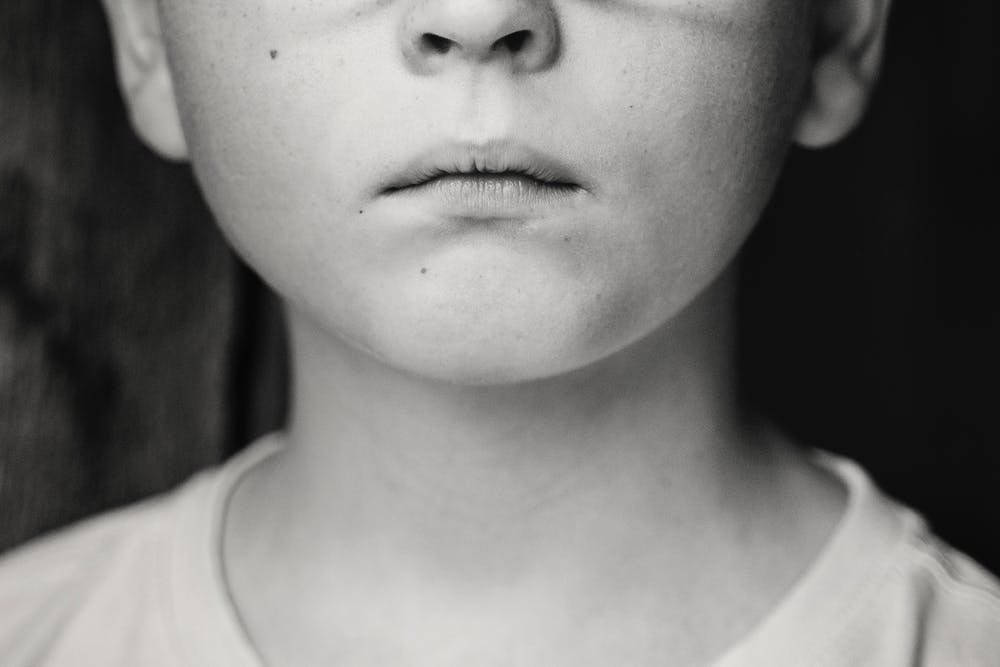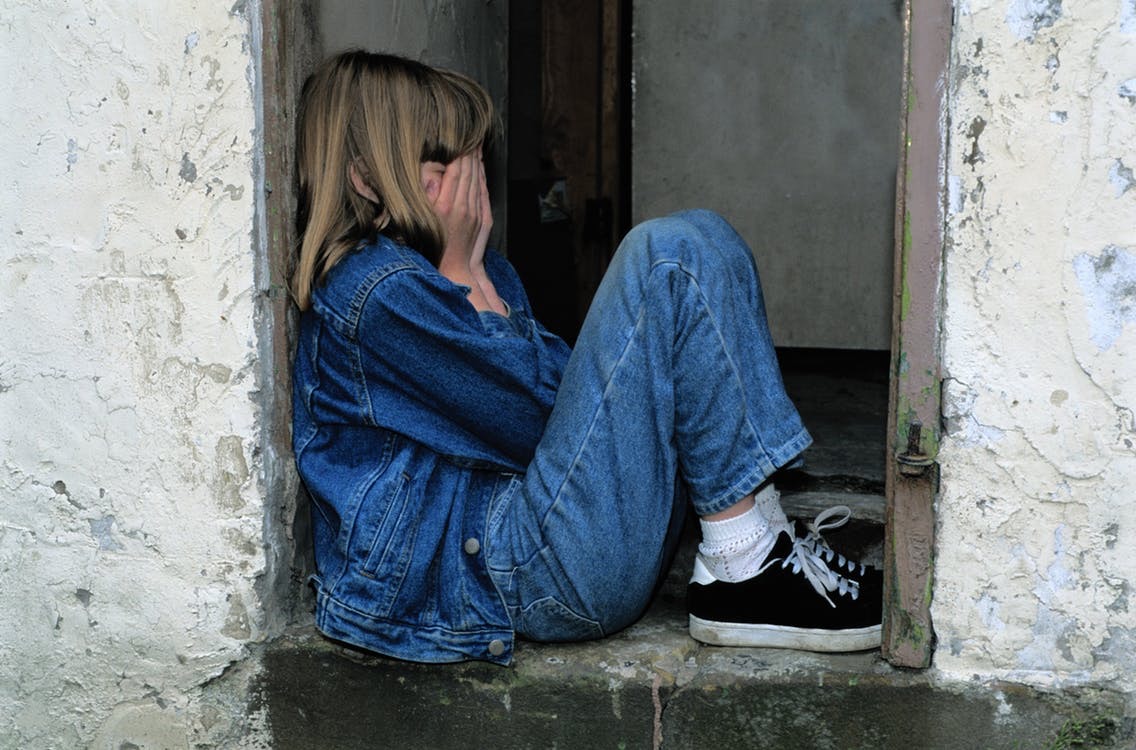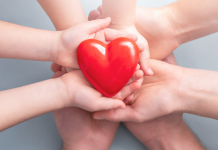Your world comes to a screeching halt as your child tells you “He touched me.” There’s a million thoughts and emotions firing up in your brain. How? When? My baby! That monster! Rage. Shock. Guilt. You don’t know what to do when your child tells you they were sexually abused. However, those moments after your child confirms your worst fears are precious moments. They are looking to you to define themselves not only in that instant, but for the future to come. Because, as a victim of sexual abuse, your child is already hurting. I know this to be true because I am a survivor of childhood sexual abuse myself.
Someone we trusted molested me for years and I am a survivor. The day my parents found out, and their reaction to it, is still vivid in my mind. What they were able to say…I needed to hear so much more. Being parents in this situation, they were unable to provide what I wanted them to give me. It left me further ashamed and hurt. It is a trauma that ended many years ago but still cuts deep.
As a child, I wanted to replace the feelings of being used and broken with love, empathy, and acceptance. Looking to my family, I was trying to fulfill those needs but they didn’t know how to be there in that capacity. Now, as a parent, I wish my parents would’ve known how to be more supportive. Though that time has passed, I now have the experience to help other families learn how to cope– should they ever have to face it. I am not a licensed professional, but as a survivor of sexual abuse these are my personal beliefs and recommendations on how to take the next steps if your child tells you they were sexually abused.
Understanding Sexual Abuse

To understand how to cope, we must first know what childhood sexual abuse actually is. According to RAINN (Rape, Abuse and Incest National Network), sexual abuse includes:
-
“Exhibitionism, or exposing oneself to a minor
-
Fondling
-
Intercourse
-
Masturbation in the presence of a minor or forcing the minor to masturbate
-
Obscene phone calls, text messages, or digital interaction
-
Producing, owning, or sharing pornographic images or movies of children
-
Sex of any kind with a minor, including vaginal, oral, or anal
-
Sex trafficking
-
Any other sexual conduct that is harmful to a child’s mental, emotional, or physical welfare”
To follow are some key points to remember as a parent when dealing with sexual abuse.
Believe your child when they tell you.

If your child is able to let you know that they were sexually abused, then it is your job to believe them. The validity of their story is not for you to question. Statistics say that “every nine minutes child protective services substantiates, or finds evidence for, a claim of child sexual abuse.” That child is already feeling violated and ashamed. They are feeling like they are at fault. Try not to exhibit signs or words of distrust because you could further traumatize a child who is already hurt.
It’s not about you, it’s about your child.
How you react in front of your child after finding out that they were abused is critical. Keep in mind that, at that moment, it’s not about you. It’s about the child. The child was victimized and they may blame themselves, feel scared, and/or hurt. Worrying about whether their parents will be mad at them is not uncommon. Breaking the silence in itself can be a frightening experience for an already vulnerable child.
Wondering, “Why my child? What could I have done?” is natural, but then you are putting your child’s emotions secondary to yours. Those eyes are looking at you to let them know that you feel their pain, and that they can come to you with whatever, whenever.
Let them know that they will be fine and everything will be okay. Be their steady when they have been rocked. Remind them that they are loved, and that you do not blame them. Tell them that they are not alone.
When did it happen and by whom?
The next most important thing to find out is if your child is still in danger. If your child is willing to give you a name, that would make it easier for you to keep him or her protected. No matter how close the relationship, you must protect your child first. Sadly, victims of child sexual abuse are often abused by a known perpetrator. In fact, among the cases that are reported to law enforcement, 93% of the children knew their abuser. And of those known perpetrators, 34% of them are family members.
Do not take them to someone’s house where they have been abused. Keeping them out of that environment is so important after knowing they have been harmed. Nor should you take liberties from your child by allowing your fear to suddenly seclude them from everything and everyone. It will inadvertently feel like you are taking their freedom and punishing them for their abuse.
Your legal obligation to report might vary. According to RAINN, every state has its own laws and mandatory reporting requirements. The laws and requirements for Michigan can be found here.
Listen more and ask less.
When your child tells you what happens, listen to them. Let them tell you without intervening with questions or comments. If they decide to tell you in bits and pieces, respect their decision. They may decide to tell you at length and in full, listen to them no matter how difficult it is to hear about it. This may be difficult for them and they may not want to not give any details at all– respect that as well, whether they tell you immediately after it happens or weeks/months/years later. Everyone deals with trauma in their own way. They didn’t have control of their situation but they can have control over their story and how to tell it. As a parent, you need to listen and let them be heard.
Pay attention to their behavior.
Once you know what has happened, pay attention to how they are acting in addition to asking if they are fine. If they seem frightened by sounds and places, be aware of the trigger and avoid those situations. Experiencing anger or being on edge may be normal. Be their calm by speaking to them calmly and lovingly. Let them have a say in how they feel protected.
If they are exhibiting sadness and seem reserved, help them find a creative outlet to express their pent-up emotions and pain. But most importantly…
Get the help you and your child need.
Sometimes the fear of exposing a family member can deter us from reaching out to seek professional help. Or, it may be that you do not want your child to “relive the nightmare” they have already endured. Seeking help can allow your child to heal more efficiently. Getting professional help can provide tools for you to be a resourceful parent who can help your child more adequately.
It can also help you as a parent heal from the many emotions you may be feeling. Many times, parents themselves feel betrayed because of the trust the abuser broke (especially in the case of close family or friends). A parent may also need a place where they can express their hurt, anger, fear, guilt, and other emotions. If a parent was themselves a victim of sexual abuse, this can be especially difficult to deal with. A professional therapist or counselor can provide both the parent and child “a safe space” to be heard as well as a way to navigate through the trauma.
Here are some other helpful resources that can help you:
-
If you or your child is in immediate danger, call your local law enforcement or 911.
-
Contact National Sexual Assault Hotline at 1-800-656-HOPE (1-800-656-4673).
-
Contact ChildHelp National Child Abuse Hotline at 1-800-4-A-CHILD (1-800-422-4453).
-
Visit RAINN’s website for more information and resources.
-
The State of Michigan has a confidential 24/7 hotline at 855-864-2374, or visit their website to find resources in your county.
In Lansing specifically:
-
End Violent Encounters helps victims of sexual assault and domestic violence. They can be contacted online and at 517-372-5976. They also have a crisis line at 517-372-5572.
-
Small Talk Children’s Advocacy Center helps sexually assaulted children. Contact them at 517-253-0728 or online.
These books can also help you discuss the topic of child sexual abuse with your children whether they have been victimized or for preventative action:
Freeman, L. (1987). It’s MY Body: A Book to Teach Young Children How to Resist Uncomfortable Touch. Seattle, WA: Parenting Press. Ages 3-8; also available in Spanish.
Lowery, L. (1995). Laurie Tells. Minneapolis, MN: Carolrhoda Books, Lerner Publishing Group. Age 11 and up.
Ottenweller, J. (1991). Please Tell! A Child’s Story About Sexual Abuse. Center City, MN: Hazelden Foundation.
Stauffer, L., & Deblinger, E. (2003). Let’s Talk About Taking Care of You: An Educational Book About Body Safety. Hatfield, PA: Hope for Families. Version for preschool children also available.
These book suggestions are for any parent who may need resources on how to deal with their child’s abuse:
Adams, C., & Fay, J. (1992). Helping Your Child Recover From Sexual Abuse. Vancouver, WA: University of Washington Press.
Brohl, K., & Potter, J.C. (2004). When Your Child Has Been Molested: A Parents’ Guide to Healing and Recovery. (Revised ed.). San Francisco: Jossey-Bass, A Wiley Imprint.
Daugherty, L. (2006) Why Me? Help for Victims of Child Sexual Abuse (Even if They are Adults Now). (4th ed.). Roswell, NM: Cleanan Press, Inc.
It is devastating to learn that your child has been sexually abused. But, it is a devastation that can be recovered from. As a parent, your role in your child’s healing is a pivotal one. Being an informed parent will help you to know what to do when your child tells you that they were sexually abused. It can either help them navigate through their trauma or it can leave them wishing you could’ve done more. There are an estimated 39 milion survivors of childhood sex abuse in America today. Survivors who once were, or still are, hurt children who need someone to tell them that they are loved and that they will be okay.










